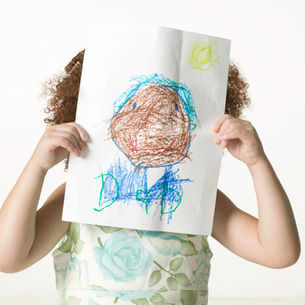2-year-olds don’t care how others feel — so stop forcing them to apologize
- Jul 9, 2017
- 4 min read

This thought provoking peace by Meghan Leahy highlights a situation that often occurs in the pool between tikelets and their parents. It can be hard to find a balance between what we feel is socially expected from other adults, and what is developmentally appropriate for each child. Enjoy the read, and we'd love to hear your thoughts.
Q: What do you think about making kids say they’re sorry? In theory, it’s nice to teach that apologies are proper when you’ve hurt someone. But we have a 2-year-old, and I’m 100 percent sure he is not sorry at all for hitting the dog, for example, or his brother. I’m just not sure what reaction is appropriate at this age or whether an apology should come into play.
A: As I have worked with parents over the years and raised my own kids, I have begun to understand this question differently. I, too, have struggled with whether to make my kids apologize for grievous missteps and hurt feelings. I have struggled with my words and actions, and I’ve learned from my mistakes.
Whenever we begin a question with “What do you think about making kids . . . ,” we are going to run into trouble. Humans do not do well with being made to do anything. From birth to death, humans are allergic to coercion. Children, especially, do not appreciate being bossed around, and it is one of the fastest ways to get some pretty undesirable behavior. “Stop jumping on the couch!” gets you more jumping on the couch. “Hurry up and put your shoes on!” results in dawdling and nary a shoe in sight. Emotions work the same way. When children feel pushed to have an emotion, it sparks the opposite emotion.
Maturity is a funny thing. To develop his sense of agency and willpower, your son must strongly identify with you, and then, if that attachment is secure, he can venture deeper into his identity. As he matures, he will take on other perspectives, and only then can he understand what it means to hurt another person. But we cannot teach children to feel sorry. If they have a warm, loving and secure attachment to others, they will naturally mature into having empathy for others.
But as parents, we must address the normal misbehavior of our children. Whether your child is hurting siblings or pulling the dog’s tail, you are expected to step in. If you didn’t do so, you would be shirking your duties, and your child would quickly become a nightmare. So what do you do when your child misbehaves and an apology feels appropriate?

1. It depends on age. Children who are immature (typically age 6 and under) do not benefit from being forced to apologize. They simply don’t get the emotion you are going for. If they felt sorry, you would see it. Young children (about 2 years old) want what they want and have no thought of how others feel — and that’s normal. Forcing them to feel sorrow or guilt just confuses them.
Instead, you apologize. Say, “Oops, sorry, Billy just hit you.” And then move the moment along. As the child ages and the situation feels right, you can bring attention to others’ feelings: “Oh, brother is crying. Do you think his arm hurts? Let’s get an ice pack.” I call this making amends. It is powerful because we are slowly starting to notice others’ pain, we are naming the feelings, and we are trying to make things right by taking positive actions.
2. When your child has demonstrated developmentally normal callous and self-centered behavior (usually toward a classmate, teacher or playmate), and you are horrified and embarrassed, I am fond of the occasional apology note. Find a quiet moment and, together, write a note to the hurt child: “Dear Angelica, I called you a mean name and hurt your feelings. I am sorry. Sincerely, Thomas.” Have him sign his name, draw a picture, etc. Mind you, if your child runs away and screams “NO!,” that is not an invitation for you to chase him down and force an apology.
3. As your son ages, you can have more discussions about appropriate reactions to hurting other people. The thing is, everyone has hurt someone else. It’s human. There isn’t a person walking who has not, either intentionally or unintentionally, hurt a friend or family member. There is no need to build a shame-filled story around an incident. Simply ask your son how he would feel if he were on the receiving end of the behavior. This conversation will tell you a lot about your relationship with your son, as well as his level of maturity.
Remember, you could force your 2-year-old to say sorry, but it wouldn’t help him become empathetic. You are parenting for the long haul here.

More of Meghan's work can be found here
Photo credit: Wix













Comments